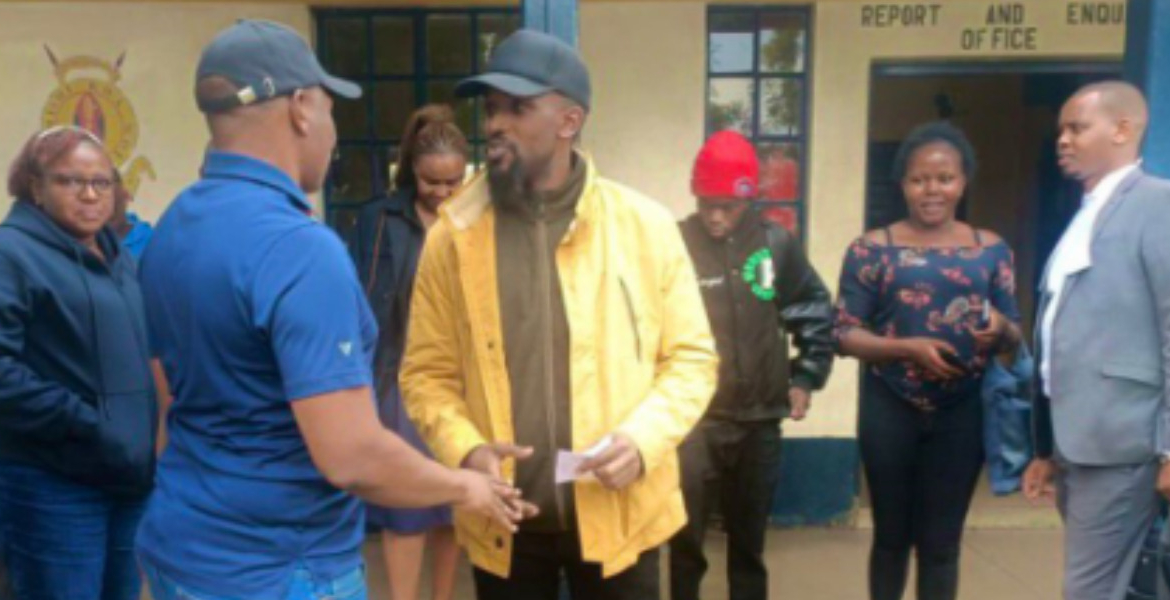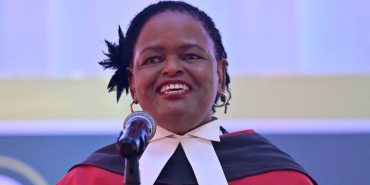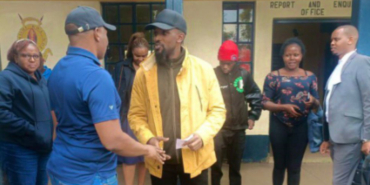TikToker Kakan Maiyo Freed on Sh10,000 Bond After Arrest Over Incitement Claims

Kakan Maiyo, a prominent Kenyan TikTok personality known as “Kan”, was released on police bond on Tuesday, 11 July, following his arrest on suspicion of inciting violence against law enforcement.
Maiyo, who operates LetaPeleka Logistics in central Nairobi, was apprehended on 9 July. The Directorate of Criminal Investigations (DCI) confirmed the arrest, stating that detectives traced Maiyo to Kimathi House following the circulation of a video allegedly calling for attacks against police officers and their families. While authorities claim the arrest is part of a broader effort to curb hate speech amid the recent unrest, legal representatives decry the actions as procedural violations and disregard for due process.
Mwaura Kabata, Vice President of the Law Society of Kenya and lead counsel for Maiyo, strongly criticised the handling of the case. Kabata said that despite the DCI's initial announcement that Maiyo would be presented at Kahawa Law Courts, he was neither charged nor officially arraigned. Kabata maintains that this delay constitutes an infringement of Maiyo's constitutional rights.
“The DCI failed to arraign him despite making public statements to the contrary. This is a total violation,” Kabata asserted in a press statement.
According to reports, Maiyo was taken to Milimani Law Courts hours before his release, yet court proceedings did not commence. He was then returned to Muthaiga Police Station and subsequently granted a Sh10,000 police bond, which under Kenyan law, allows for temporary release pending possible prosecution for non-capital offences.
Maiyo's arrest occurs at a politically sensitive time, marked by escalating government rhetoric against individuals engaging in what President William Ruto terms anarchic behaviour. In a recent address, Ruto characterised attacks on law enforcement as tantamount to terrorism, directing security agencies to respond firmly. Notably, he instructed officers to shoot looters in the leg—a directive that has drawn scrutiny from human rights observers and constitutional experts.
“This is no longer a protest; this is anarchy,” the President declared. “We cannot have a nation governed by violence... Anyone destroying property should be incapacitated and face the law.”
Maiyo's online presence, particularly on TikTok, positions him as a vocal critic of state institutions, with a specific focus on police conduct. While the DCI has not cited a specific video as evidence, Maiyo’s content frequently condemns alleged acts of police brutality and arbitrary detention. In one recent post, he implored security agents to resist being used as instruments of political repression, urging them to consider their personal connections to ordinary Kenyans caught in the crosshairs of unrest.
Furthermore, Maiyo commented on the death of blogger Albert Ojwang, who died in police custody under disputed circumstances. Maiyo’s arrest highlights growing tensions between freedom of expression and efforts by authorities to clamp down on perceived threats to public order. The government insists that such measures are necessary to safeguard national stability, while critics argue that the expansive interpretation of incitement risks silencing legitimate dissent.
Platforms like TikTok have emerged as tools for grassroots mobilisation and narrative-shifting, particularly among young Kenyans disillusioned with mainstream media and traditional institutions.








Add new comment